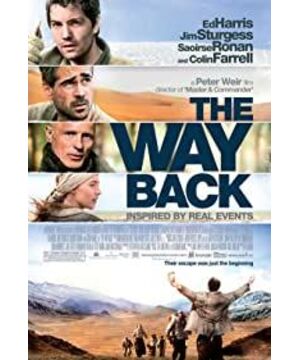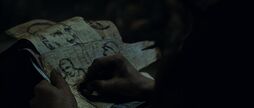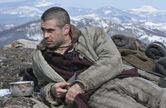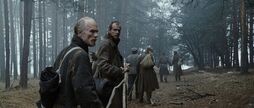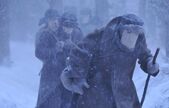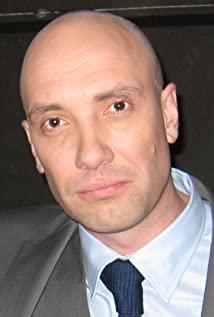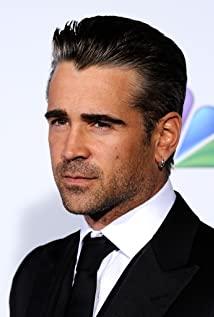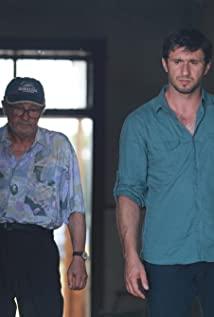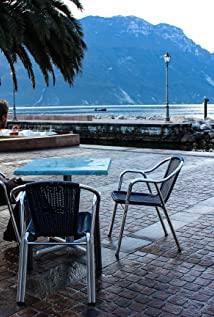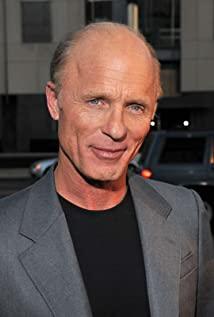The first description of this feat was in the book the long walk, published in 1956, but later generations have continually questioned its authenticity. Can a few people walk 6,000 kilometers across Eurasia without food and clothing? What's more, what they have to face are ice fields, Gobi, deserts and snow-capped mountains?
Aside from the authenticity, it doesn't really matter if this is all fiction. I think the director's purpose is obvious, which is to celebrate the persistence and belief in freedom.
The scene at the beginning of the film was also staged in our country 40 or 50 years ago. The wife denounced her husband in tears, accusing him of being dissatisfied with the leader and speaking ill of the great leader. As a result, her husband was thrown into a labor camp in Siberia, where he survived in harsh conditions. Recently, he was reading Jiabiangou Chronicle, and such scenes were almost everywhere. "Revolution" wiped out human nature and destroyed the last dignity of human beings.
The story of the film is mainly divided into two parts. The first part is about various characters in the labor camp. There is an old man from the United States. He came to the Soviet Union because of the Great Depression. As a result, his son was killed and he was imprisoned. Actors of the "feudal degenerate class" who came up with the idea of escape but didn't have the courage to implement them; there were priests who "mercilessly" killed demolitions for resisting Stalin's destruction of churches. Among them, the most eye-catching image is the gangster played by Colin Farrell. He was imprisoned here because of a criminal case, and his status is higher than that of a political prisoner, because he is not "the enemy of the people". He was brutal by nature, killing anyone casually just to strip him of his clothes to pay off gambling debts, but he was so loyal to the Supreme Leader that he even had Lenin and Stalin tattooed on his chest. When they escaped, the other exiles made fun of his tattoos, and he was furious, saying that he truly admired them, that they were truly great men. After reaching the Mongolian border, he was reluctant to move forward and chose to stay on his own land. Such a character with a complex personality is actually the most real, I don't know how to evaluate him, a brainwashed prisoner? Or a principled villain?
The plot after that is the same as the "Long March", climbing snow-capped mountains, crossing the grass, just for a piece of free land. There are not many dialogues, the shots are cold, and the large number of long-term perspectives further highlights the insignificance of the individual, fragile and helpless in the face of the majestic nature. Many times you feel as though you are God, sympathetically observing the suffering of the martyrs. Watching the little dots slowly wriggling in the silent world, faltering but extremely firm, can't help being awe-inspiring. They have nothing, their only support is fearless hope.
At the end of the film, the video shows the passing of history on the go. From the partition of Poland, to the Prague Spring, to the upheaval of Eastern Europe and the collapse of the Soviet Union. Honestly, I didn't like this ending, and it's the film's fatal flaw: the ideological expression is too obvious, raising the behavior of a few fugitives to the height of the fight against communism as a whole. At this time, freedom was also endowed with a political meaning and became the exclusive product of the Western world. Such thinking should have emerged during the Cold War, not now. So, for me, it's a great movie, but it's not a masterpiece. (It seems that Peter Weir's films have this feature, and they are excellent in all aspects, but there seems to be something missing.) I don't know if it is for this reason, this film has only been nominated for the Oscar for Best Makeup (not yet Received...) and missed out on major awards.
There are two more points to say:
1. The interesting point of this film is the research on their route. Since National Geographic also participated in the film, the general orientation can not be too wrong. But details such as the Great Wall and Lake Baikal are still interesting to dig out.
2 After completing this feat, the protagonist returns home, embraces his wife, and forgives her for betraying himself. And this hug was exactly what motivated him to travel thousands of miles to go home. This scene is sure to touch many people. "Forgiveness" is a virtue, and in today's China it is often seen as cowardice, which may be one of the reasons why our times are so hostile.
View more about The Way Back reviews


